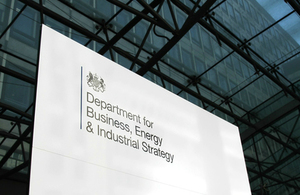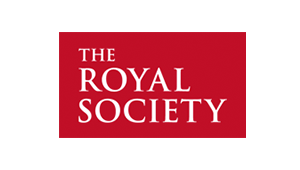This call opens on Je-S 25 August 2017. Closing on 19 September 2017
In response to the industrial strategy, Research Councils UK (RCUK) (UK Research & Innovation (UKRI)) has developed a fellowship programme to be supported through the National Productivity Investment Fund. Targeted at early career researchers (ECRs), RCUK / UKRI Industrial Innovation Fellowships will be a step change in the support provided by the research councils to the research leaders of the future, enabling some of the UK’s most talented researchers to undertake major new innovation oriented and intellectual endeavours.
 For applicants within NERC’s science remit, NERC will be delivering these fellowships through Industrial Innovation Fellowships and Industrial Mobility Fellowships
For applicants within NERC’s science remit, NERC will be delivering these fellowships through Industrial Innovation Fellowships and Industrial Mobility Fellowships
RCUK (UKRI) 2017 Industrial Innovation Fellowships support the delivery of the industrial strategy by supporting early career researchers to explore interdisciplinary solutions as well as addressing focused sectoral needs to the economic benefit of the UK, both in the short term and long term. This scheme will ensure that the UK industrial sector has a supply of skilled researchers and will nurture future leaders in both industry and the research base.
Industrial Innovation Fellowships are three-and-a-half-year research fellowship awards where the award holder undertakes a programme of research clearly aligned with the objectives of the industrial strategy – and particularly the core challenge areas identified within the green paper – whilst maximising the impact of this research through working in collaboration with users of research.
It is anticipated that 24 Industrial Innovation Fellowships will be supported through this call and the successful applicants will commence their fellowships by 1 January 2018 at the latest.
Please see the Announcement of Opportunity document below for full details of the call including information concerning how to apply.
Announcement of Opportunity (PDF, 158KB)
Frequently asked questions (FAQ)
NERC has prepared a FAQ document for this call – this document will be updated over the lifetime of the call so please check the latest edition before contacting NERC with your query.
Frequently asked questions (PDF, 102KB)
Contacts
For queries regarding the application process and administration of this opportunity, please contact:
David Roberts
01793 442644
researchcareers@nerc.ac.uk
If you are interested in applying, please contact your RKEO Funding Development Officer immediately (given the short deadline).

 Universities and Science Minister Jo Johnson today (4 July 2017) confirmed the government is investing £100 million to attract highly skilled researchers to the UK through its new Ernest Rutherford Fund.
Universities and Science Minister Jo Johnson today (4 July 2017) confirmed the government is investing £100 million to attract highly skilled researchers to the UK through its new Ernest Rutherford Fund. The Arts and Humanities Research Council (AHRC), Economic and Social Research Council (ESRC) and the UK Foreign and Commonwealth Office (FCO) are pleased to invite applications to the AHRC-ESRC-FCO Knowledge Exchange (KE)
The Arts and Humanities Research Council (AHRC), Economic and Social Research Council (ESRC) and the UK Foreign and Commonwealth Office (FCO) are pleased to invite applications to the AHRC-ESRC-FCO Knowledge Exchange (KE)  The fellowship scheme will go beyond current ad hoc arrangements, create deeper engagement between academia and policy, impact on diplomacy, increase the professional reputation of participating scholars and build long term, two way relationships. The benefits will flow to the wider academic community through fellows’ engagement with their home research organisation and wider research communities as well as through a dedicated policy seminar series hosted by the FCO during the lifetime of the scheme.
The fellowship scheme will go beyond current ad hoc arrangements, create deeper engagement between academia and policy, impact on diplomacy, increase the professional reputation of participating scholars and build long term, two way relationships. The benefits will flow to the wider academic community through fellows’ engagement with their home research organisation and wider research communities as well as through a dedicated policy seminar series hosted by the FCO during the lifetime of the scheme.


 Time restrictions based on the number of years since a researcher was awarded their PhD have been removed from
Time restrictions based on the number of years since a researcher was awarded their PhD have been removed from  PSRC is
PSRC is 










 From Sustainable Research to Sustainable Research Lives: Reflections from the SPROUT Network Event
From Sustainable Research to Sustainable Research Lives: Reflections from the SPROUT Network Event REF Code of Practice consultation is open!
REF Code of Practice consultation is open! BU Leads AI-Driven Work Package in EU Horizon SUSHEAS Project
BU Leads AI-Driven Work Package in EU Horizon SUSHEAS Project ECR Funding Open Call: Research Culture & Community Grant – Apply now
ECR Funding Open Call: Research Culture & Community Grant – Apply now ECR Funding Open Call: Research Culture & Community Grant – Application Deadline Friday 12 December
ECR Funding Open Call: Research Culture & Community Grant – Application Deadline Friday 12 December MSCA Postdoctoral Fellowships 2025 Call
MSCA Postdoctoral Fellowships 2025 Call ERC Advanced Grant 2025 Webinar
ERC Advanced Grant 2025 Webinar Update on UKRO services
Update on UKRO services European research project exploring use of ‘virtual twins’ to better manage metabolic associated fatty liver disease
European research project exploring use of ‘virtual twins’ to better manage metabolic associated fatty liver disease